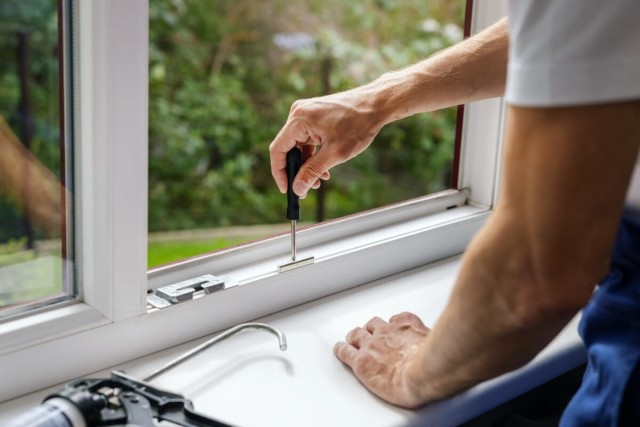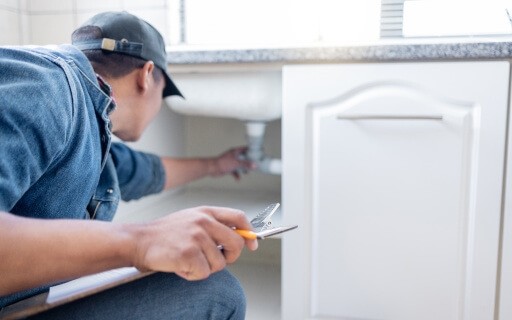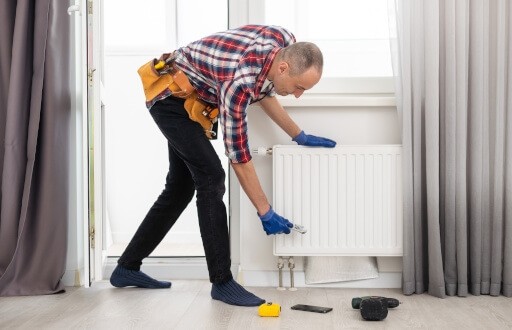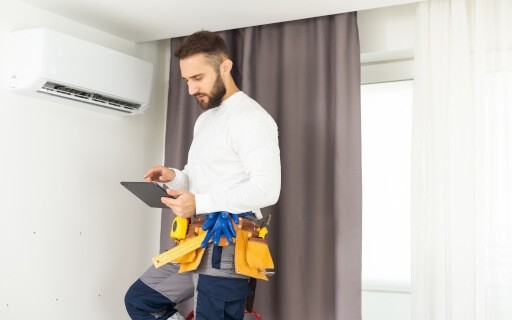Spring is the perfect season for landlords to conduct a thorough inspection of their rental properties. Addressing essential spring maintenance tasks, such as HVAC system checks, roof inspections, and landscaping, can help prevent costly repairs and ensure tenants enjoy a safe and comfortable living environment. By prioritizing seasonal upkeep before the summer heat arrives, landlords can enhance property value, improve tenant satisfaction, and avoid unexpected issues. Below, we’ve detailed actionable steps to keep your rental property in top condition as temperatures rise.
The steps to help you prepare for spring are:
- Start with an Exterior Inspection
- Conduct an Interior Inspection
- Know the Law and the Lease Agreement
- Prioritize and Execute a Plan
Start with an Exterior Inspection
To begin your spring maintenance check, walk around the exterior of the property to look for any winter-related damage. During your inspection, you should:
- Check the roof and siding for deterioration. Any missing or broken shingles are usually visible from the ground, so you shouldn’t have to get on a ladder to inspect for roof damage.
- Look for gutter leaks. Winter weather can take a toll on gutters. Any leak you find should be repaired immediately to prevent further damage to the siding or possible erosion around the foundation.
- Test outdoor spigots. If water froze in the pipes of your spigots, they may leak and can cause extensive damage.
- Inspect driveway and walkways for cracks. Possible earth movements from freezing weather could cause cracking in driveways and walkways, and water that seeps through the cracks can cause erosion.
- Take note of any rotting conditions. Wood siding, trim, fences, and decking are all places where you should look for rot. Although a small amount isn’t an urgent issue, extensive rot should be dealt with during spring maintenance to avoid a worsening problem.
- Inspect the lawn, garden, and surrounding foliage. If there are any branches that have the potential to block windows or overhang the roof later in the summer, spring is a great time to prune them back. Even if lawn maintenance is your tenants’ responsibility (depending on the lease), you should still check the lawn for any weeds that need to be treated in order for the lawn to thrive in the summer.
Conduct an Interior Inspection
After you’ve completed your exterior inspection, it’s time to inspect the inside of your rental property. If winter weather has caused any interior damage, tenants will likely be aware of it and should promptly let you know. It’s still a good idea, however, as the landlord or property manager to conduct your own examination. During this inspection, you should:
- Assess the damage caused by roof or siding leaks. This damage could range from soggy drywall and mold to warped flooring, brown spots on the ceiling, or compromised electrical fixtures.
- Note the condition of the flooring. Winter weather can mean snow and salted roads, depending where your property is located, so check the carpet, tile, hardwoods, etc. for any damage that may have been tracked inside.
- Turn on the air conditioner. First and foremost, make sure the air conditioning is working. If it’s not, be sure to call a professional to get the issue resolved before the weather warms. It’s also a good time to replace your HVAC filters.
- Check for signs of pests. While in the unit, check for termites, cockroaches, ants, and rodents. Critters tend to take cover in the walls during winter, so they will likely still be there when spring comes.
Know the Law and the Lease Agreement
Now that you have conducted your inspections, it is important to be aware of who is responsible for upkeep and certain repairs. Serious maintenance issues like leaks and burst pipes fall to the landlord, not the tenant. It’s the landlord’s responsibility to complete the repairs or hire someone to do them. Being aware about what your state requires of landlords in regard to maintenance to ensure you remain compliant with the law, avoid potential legal disputes, and provide a well-maintained environment that keeps tenants satisfied and your property protected.
To avoid confusion over who is responsible for what and who pays for the repairs, there should a lease clause or amendment that covers the topic. Clearly defining maintenance responsibilities in the lease protects both parties by setting expectations up front. These terms should specify what the landlord is obligated to maintain, such as HVAC systems, plumbing, or structural elements, and outline tenant responsibilities, such as keeping the property clean or alerting the landlord promptly to any issues. Having these details in writing minimizes disputes and ensures that both sides understand their roles in maintaining the property.
If your rental property is a house or townhome, one potential gray area during the spring is maintenance of a lawn or garden. Many tenants enjoy landscaping and may even consider it a perk to be allowed to do it themselves. However, other tenants prefer this task to be handled by a professional. Ideally, an agreement on the matter occurred prior to the tenant’s occupancy; however, an amendment to the lease may be an option if you have a renter with a happy green thumb.
Prioritize and Execute a Plan
It’s time to itemize the repairs you need to make. If a repair is deemed as urgent, take care of it as soon as possible. Other maintenance issues that aren’t as immediate can be repaired at a later date, but keep your itemized list as a reminder to check back on the issue. Priorities tend to change as the weather warms and summer arrives, but winter will come again, and issues you don’t repair this year will still be there next year. To avoid conditions that can take a sudden turn for the worst, keep up with your routine inspections and repairs; and remember, always give tenants proper notice before entering the property for inspections or to make repairs.
Spring upkeep may take some effort, but it’s a critical investment in your property’s long-term condition and value. By inspecting and maintaining items such as HVAC systems, gutters, outdoor spaces, and other key property elements, you set the stage for a trouble-free summer while also meeting tenant expectations. Maintain a seasonal checklist to make these tasks manageable and ensure they’re performed every year—your property (and tenants) will thank you!
Looking for a way to manage service requests from your tenants? Apartments.com provides landlords with rental tools that can help landlords keep track of maintenance requests submitted through our website. You'll even get notified when your renter submits a request, and you can update them as the repair progresses. Let our rental tools ease the burden of property management!
Was originally published on March 8, 2021 by Meredith Bullock










